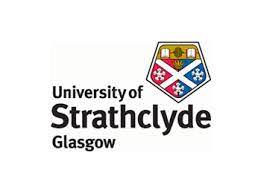University of Strathclyde: COVID-19 legacy and spending commitments makes for challenging Scottish budget outlook
The outlook for Scotland’s budget in 2022/23 will be challenging despite the Scottish government’s block grant being significantly higher than it was pre-pandemic, according to the Fraser of Allander Institute.
In its pre-budget report, the University of Strathclyde-based Institute says the continuing legacy of the pandemic on public services, together with a new set of election commitments, will continue to strain the Scottish budget next year, and become increasingly difficult by 2024/25.
Spending review
The Scottish government will publish its budget for 2022/23 on 9 December. It will be the first budget of this session of parliament, following the elections in May. It will also be the precursor to a spending review, covering spending plans to 2024/25, due to be published next year.
The Fraser of Allander Institute’s annual pre-budget report, published on 6 December, examines the context to the budget and the key decisions facing the Scottish government, both in 2022/23 and beyond.
Its findings include:
The Scottish government’s core resource block grant will be £35bn in 2022/23, some 8% higher in real terms than it was in 2019/20. But it will be lower than in either of the past two years (2020/21 and 2021/22).
Whilst the most significant direct fiscal impacts of the pandemic are, hopefully, in the past, the longer-term legacy of the pandemic on public services remains acute, particularly in health and social care.
The government’s commitments on health imply that the health budget will increase to around £17bn in 2022/23. This represents a 15% real terms increase on the 2019/20 level. Even so, addressing the challenges in the health sector – including the government’s aspiration to increase capacity by 10% alongside other pressures and commitments – will be extremely challenging.
This parliament will see significant change to the structure of social care. It is not yet clear how far the government will go in implementing all the recommendations of the Feeley review. But it seems likely that its spending commitments will not be sufficient to fully implement all the proposals.
The government’s flagship policy to tackle child poverty, the Scottish Child Payment (SCP), will be doubled to £20 from April 2022. The policy will cost well over £300m when fully rolled out, and whilst it will reduce child poverty significantly, it will not on its own be enough to meet interim child poverty targets.
The rollout of the SCP is one element of broader transformational change of the social security system in Scotland during the forthcoming parliament. This ability to establish a distinctive social security policy is a welcome illustration of the advantages of devolution, but the implication of policy announcements is higher tax or lower spending in other parts of the Scottish budget than would otherwise have been the case.
Health spending will absorb over half the increase in the government’s budget over the next three years. The implication is that some areas of public spending may see significant spending restraint between 2022/23 and 2024/25.
In this context, the publication by the Scottish Government of a Spending Review next year takes on added significance. The budget is likely to be increasingly dominated by spending on health, social care, and social security. Implications for many other areas is more uncertain.
The government faces two key decisions on tax in Thursday’s budget. On income tax, it could freeze tax thresholds in cash terms or increase them in line with inflation. Freezing thresholds would generate around an additional £140m in revenue compared to increasing thresholds in line with inflation.
On Non-Domestic Rates, the government must decide how quickly to roll back the 100% rates reliefs for businesses in tourism, hospitality and leisure. Providing the full relief costs the government around £736m in reduced revenue. The longer the relief is maintained, the less likely it is to have tangible economic benefits.
Underlying pressures
Author of the report, David Eiser, said: “A core resource block grant in 2022/23 that is 8% higher than pre-pandemic might sound generous, but to deal with the pandemic’s legacy and underlying pressures on public services it is anything but. In this context, Kate Forbes’ third budget may well be her most challenging.
“But the challenges are unlikely to dissipate in subsequent years, as commitments and aspirations on health, social care and social security in particular rub up against a budget that is currently forecast to remain flat in real terms between 2022/23 and 2024/25.”
Mairi Spowage, Director of the Fraser of Allander Institute, said: “A challenging budget for 2022/23 is the precursor to a challenging spending review next year. Navigating the health and economic recovery from the pandemic, alongside longer-term commitments on climate change and inequality will require a delicate set of budget decisions and trade-offs. This week’s budget will reveal how those choices and trade-offs have been made for 2022/23, but the more difficult trade-offs may be yet to come.”

